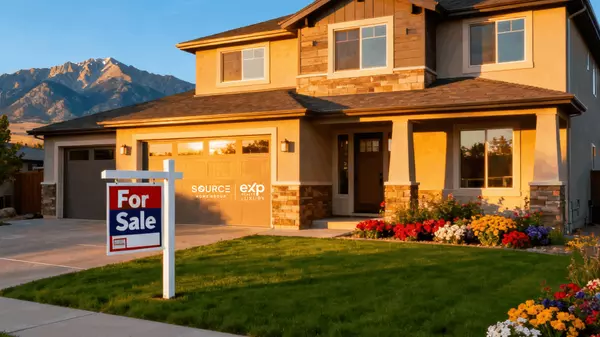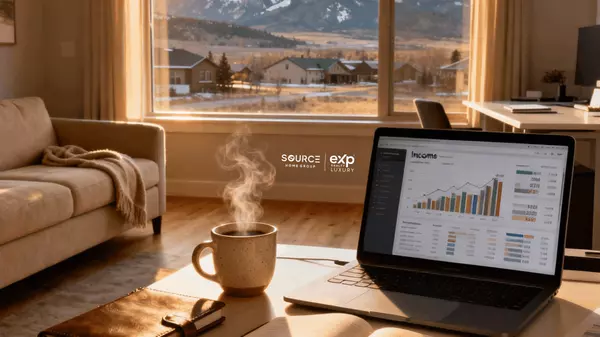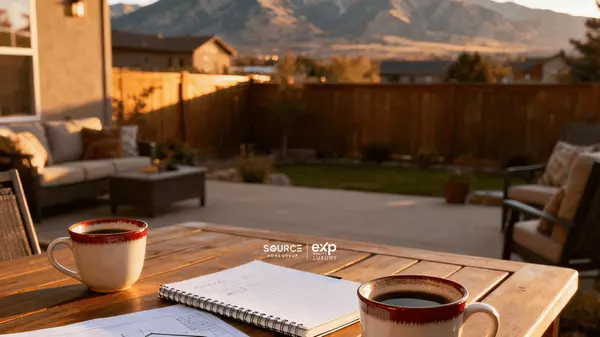6 Reasons To Buy In A Stabilizing Real Estate Market
Is Now a Good Time to Buy a House?
Though it may seem counterintuitive, there are actually several compelling reasons to think about buying a house during an economic recession. From lower prices to more inventory, those who are considering buying a house during this time may find that they are in a stronger position than they thought.
Example Opportunity:
Not only are you in a stronger position than you thought, but consider you're having a child, or already have a young child and you would like to save for their college education. If you buy a house as an investment property when they are young, and have it for 12, 15, or 18 years before they attend a university, you can sell it and pay for their college education, you can get a HELOC and/or use the cash flow to pay for their college education, OR do a 1031 Exchange and sell it to purchase a rental property in the city where they're attending college so that they can have a house to live in and get roommates that will lower your monthly payment or even CASH FLOW.

Pros:
1. Less Competition
One factor that can be working in buyers’ favor is the fact that there is simply less competition during a recession. More people enter into foreclosure and relocate for work during an economic downturn, which leaves fewer people looking to buy. This gives buyers more negotiating power when making an offer on a home since sellers will be more motivated to sell during this time. Without the competition, you have more time to make a decision, more homes to choose from, and aren't rushed into purchasing without an appraisal or inspection protecting your financial interests.
2. Lower Prices
Along with less competition, buyers will also find that prices are generally lower during an economic recession. This happens for a few reasons- first, because there are simply fewer people buying, prices go down as demand decreases. Additionally, interest rates are higher, and Sellers during this time may be more desperate and willing to negotiate on price in order to sell their homes quickly. Lastly, some foreclosures or short sales happen during an economic downturn, which can also lead to lower prices on homes. When making offers on homes during a recession or stabilizing shift, you can expect both lower list prices and offers lower than the list price being accepted. As prices have ALWAYS gone up, you can be sure you are making a strong investment into your future.
3. More Inventory
An increase in foreclosures and relocation with a decrease in purchases means that there is also typically an increase in the number of homes on the market during an economic recession. This provides buyers with more options to choose from when looking for their dream home. When you have more options to choose from, you're more empowered to make the "right" decision for you, rather than feeling pressured to just buy and old house that pops up for sale. With proper guidance from a experienced Realtor you can capitalize on strong market conditions.
4. Stronger Negotiating Power
In addition to there being less competition when buying a home during tough economic times, buyers also have more negotiating power in general. Since sellers are typically more motivated to sell quickly during a recession, buyers may be able to get away with asking for things like seller-paid closing costs or even a home warranty. 6-12 months ago buyers were submitting offers 10-25% percent over asking price, sometimes more! They made these high offers with tens of thousands of dollars of extra cash to cover the amount over the appraised value, they waived their right to an inspection, they took on a whole lot of additional expense and liability. Now, just a few short months later, you can buy homes 15% lower than you saw 6 months ago, with a full inspection including repair requests, price decreases when appraisals come in low, Seller paid closing costs, Seller paid cash at closing to lower your interest rate, creative financing options, and other incentives.
5. Time to Think
Something that potential buyers may not consider is that they actually have more time to think about their decision when buying during an economic downturn. Because the process is likely going to take longer due to the current market conditions, buyers don’t have to feel rushed into making an offer on a home. They can take their time doing things like getting multiple inspections or even shopping around for better interest rates on their mortgage. When making the largest investment of your life, it's important to be prepared before, and during, the home buying process. Eliminating the "rush" factor can help you make a smarter, and longer-term decision.
6. Housing Historically Rises Over Time
Despite any current market conditions, it’s important to remember that housing prices have always increased over time—even after past recessions. In fact, after the previous recession, homes increased in value by nearly 10% over the following year. If we look back 50 years in Denver, we know that historically, homes have increased about 4% year over year on average. Even accounting for the down times. Housing is America's most valuable asset class for a reason, and it's a safe investment when properly made. Northern Colorado is consistently voted to be America's most stable housing market as well, considering it declined about 2% in the last recession and rebounded 10% the following year.
Cons:
1. Higher Rates
Of course, there are also some potential drawbacks associated with buying property during an economic recession—namely higher interest rates on mortgages. According to Freddie Mac, mortgage rates increased significantly from July to October 2022, though they have been gradually decreasing again since then. However, even with slightly higher mortgage rates, buying now could still make sense depending on things like how long you plan on staying in the property and your overall financial goals. Rates fluctuate, and while you take on a risk of higher monthly payments, you can decrease your payments down the road when you achieve 20% equity, and again when rates decline to a range that saves you money after the refinance. Some lenders offer no-fee refinances if you purchase with them.
Conclusion:
While it may not be the right decision for everyone, there are actually several advantages associated with buying a house during an economic recession. From lower prices to more inventory, those who are thinking about purchasing property during this time may find themselves in a better position than they thought. Of course, there are also some potential drawbacks associated with buying property during tough economic times — notably higher interest rates on mortgages. However, even with slightly higher mortgage rates, buying now could still make sense depending on things like how long you plan on staying in the property and your overall financial goals.
Categories
Recent Posts










